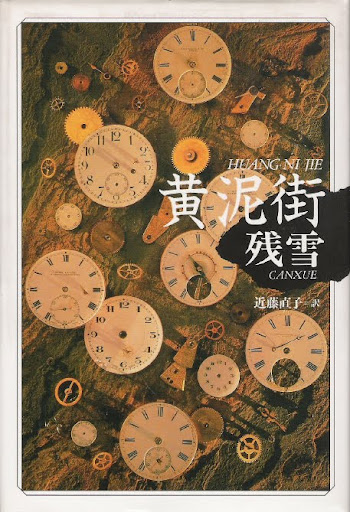
Wang Zengqi, folk culture expert, writer, editor of a volume on food writing I'd like to see. He also illustrated a reference work on the potato, which has me dreaming of a volume of food writing. (From Fang's introductory biography). Thanks to this blog for the picture.
 Chinese Short Stories of the Twentieth Century: An Anthology in English by Zhihua Fang
Chinese Short Stories of the Twentieth Century: An Anthology in English by Zhihua FangMy rating: 1 of 5 stars
I picked this up so I could read Fang's translation of "Buddhist Initiation" by Wang Zengqi. It's a ridiculously poor translation of a story that already lacks conflict and tension.
The introduction to the book has some real howlers, e.g. Fang on the 1980s in China: "It was a magic, romantic and wondrous time that will never be again." Astoundingly, Fang's bumbling historical introduction does not even mention "Buddhist Initiation."
I can see no reason to look at this volume, unless you need to read stories by Gao Xiaosheng, Tie Ning and/or Wang Zengqi quickly, in poor English that will leave you suspecting that Chinese literature really is inferior.
(Apparently the "Garland Reference Library of the Humanities" is another one of those near-vanity publishers that will publish practically anything, with no attempt to vet or consult with peers in the field.)
Finally, a response to the story "Buddhist Initiation," at least in this English translation:
Wang Zengqi’s “Buddhist Initiation” is about a town where a Buddhist monastery and an earthy citizenry exist in harmony. People love and respect the monks, even though the monks don't obey the vinaya codes that prohibit eating meat and having sex. The story drifts from scene to scene with lyrical writing about land, as well as detailed portraits of the various monks, children, old ladies, street merchants, etc. etc. that fill the town. There is a sort of a protagonist, a child named Mingzi who wants to be a monk, but also likes this one girl Yingzi. Will he be able to have both? Yes.
Like so much of Mark Twain's writing, place and language are bound so tightly together, this piece is probably not a good choice for translation. As Carolyn FitzGerald has suggested in Modern Chinese Literature and Culture, we can apply David Wang's term "imaginary nostalgia" to describe the idealized network of landscape and portrait that comprises these compositions. Note that I say "compositions" and not "stories" because landscape and portrait do not a story make.
View all my reviews
Read more...



















